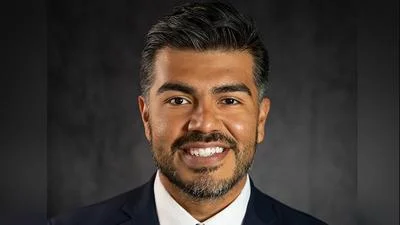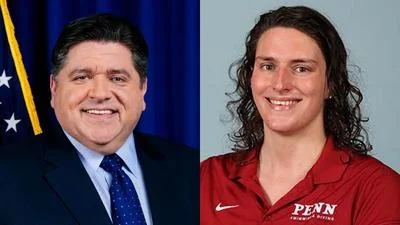State Rep. Chris Miller (R-Oakland) | repcmiller.comr
State Rep. Chris Miller (R-Oakland) | repcmiller.comr
The debate over free speech in Illinois has escalated as State Rep. Chris Miller (R-Oakland) accuses progressive liberals of undermining the First Amendment to protect feelings. This controversy comes amidst growing national concern about perceived threats to freedom of speech and expression.
“Progressive liberals are attacking our freedom of speech because they would rather protect feelings than our First Amendment,” Miller said on Facebook.
Miller’s statement comes in response to the proposed attorney anti-discrimination rule, known as Proposal 22-06, which faces opposition from lawyers and free speech advocates.
The rule, set for consideration by the Illinois Supreme Court’s Rules Committee on Nov. 15, aims to amend Rule 8.4(j) of the Illinois Rules of Professional Conduct, potentially leading to professional discipline for attorneys expressing opinions disfavored by the state’s liberal majority, according to Cook County Record.
Critics argue that the proposed changes could impede lawyers’ free speech rights, inviting potential discrimination complaints and disciplinary proceedings. Under the amendment, Rule 8.4(j) would prevent lawyers from engaging in conduct constituting harassment or discrimination based on various factors. The rule removes the requirement for regulators to evaluate accusations in totality, replacing it with a new standard that lawyers must "reasonably know" their words or actions could be considered discriminatory.
The Illinois State Bar Association (ISBA) supports the rule changes, citing the need to address lawyer harassment and discrimination. However, opponents contend that the proposal is too broad and vague, resembling a rule imposed by the American Bar Association, which faced legal challenges for violating lawyers’ free speech and association rights.
Simultaneously, newly released emails by the House Judiciary Committee reveal the Department of Homeland Security’s (DHS) role in censoring speech before the 2020 election, employing claims of disinformation. The emails disclose Stanford University’s Election Integrity Partnership (EIP), established at DHS’s request, engaged in weekly communications to address disinformation concerns, sparking questions about censorship efforts favoring one political aisle.
The House Judiciary Committee suggests federal pressure on social media companies resulted in censoring true information and political opinions, predominantly favoring one side. The implications extend beyond the election, with continued censorship efforts under the Biden administration, including the short-lived Disinformation Governance Board and revelations in the Missouri v. Biden lawsuit about censorship extending to COVID claims and other critical issues,, according to the New York Post.
In response to these concerns, a diverse coalition of 136 academics, historians and journalists has issued the "Westminster Declaration" to President Joe Biden, warning against the escalating threat of online censorship. Signatories include figures like Jordan Peterson, Richard Dawkins, Julian Assange, Tim Robbins, Edward Snowden, and Matt Taibbi. The Westminster Declaration argues that censorship is counterproductive, sowing mistrust, encouraging radicalization and de-legitimizing the democratic process. It underscores that attacks on free speech historically precede assaults on other liberties and that the current broad-scale technological tools for censorship pose new challenges to democratic structures.
The coalition believes that free speech is essential for safeguarding against state abuses of power emphasizing the need for open discourse and investigation to maintain a free and democratic society. The group calls on tech companies to refrain from censorship, governments, and NGOs to respect free speech as protected by the UN Declaration of Human Rights; it also urges the public to reject a climate of intolerance and embrace investigation and debate.
"Censorship in the name of ‘preserving democracy’ inverts what should be a bottom-up system of representation into a top-down system of ideological control. This censorship is ultimately counter-productive: it sows mistrust, encourages radicalization, and de-legitimizes the democratic process," the Westminister Declaration reads in part.
"In the course of human history, attacks on free speech have been a precursor to attacks on all other liberties. Regimes that eroded free speech have always inevitably weakened and damaged other core democratic structures. In the same fashion, the elites that push for censorship today are also undermining democracy. What has changed though, is the broad scale and technological tools through which censorship can be enacted."
"We believe that free speech is essential for ensuring our safety from state abuses of power – abuses that have historically posed a far greater threat than the words of lone individuals or even organised groups."






 Alerts Sign-up
Alerts Sign-up